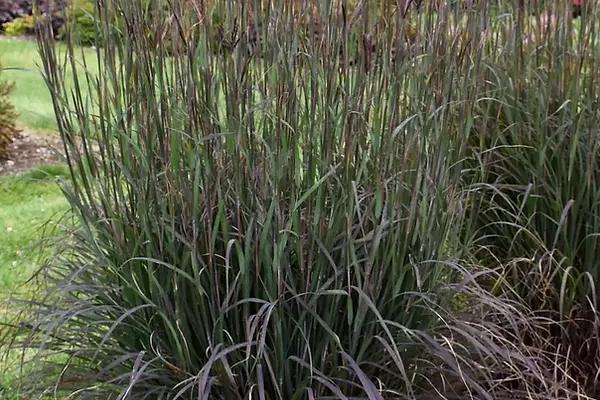
perennials
Perennials come up year after year with flowers that bloom during a specific window of time. With a little planning, you can orchestrate a beautiful perennial garden to have plants blooming year-round. We offer perennials for sun or shade, natives, a wide variety of special interest plants (i.e. hostas) as well as a large selection of ground covers, grasses, vines, and large perennials. Chat with one of our experts and start planning your perennial-filled garden!
Perennial
plants of the year
PROVEN WINNERS PERENNIAL OF THE YEAR
Andropogon gerardii
‘Blackhawks’
PERENNIAL PLANT ASSOCIATION
PLANT OF THE YEAR
Blackhawks Big Bluestem brings bold, moody drama to the garden with towering stems and near-black fall color. Deep green leaves blush purple through summer before transforming into rich, smoky tones, topped with striking “turkeyfoot” seed heads that sway in the breeze. Tough, drought-tolerant, and a magnet for birds and butterflies, this standout grass delivers season-long impact with almost no maintenance.
Why we choose
native plants
Plants should coexist, not compete.
conservation
developed landscape
reduce chemical fertilization
manage storm water
promote
wildlife
Planting natives allows developed landscapes to coexist, rather than compete, with nature. More and more Missourians are choosing to grow native to reduce maintenance, reduce chemical fertilization, manage storm water, and promote plant and wildlife conservation. By incorporating native, you are helping insects, birds, and other animals that depend on native plants to survive. To learn more about native plants, visit some of the links below or click one of our current plant lists for more information.
Garden Heights Nursery is proud to be a Grow Native! retailer. Grow Native! helps protect and restore biodiversity by increasing conservation awareness of native plants and their use in urban, suburban, and rural developed landscapes. For more information about native plants or educational programs, check out the links below.
A NATIVE LANDSCAPING EDUCATIONAL PROGRAM FROM THE MISSOURI PRAIRIE FOUNDATION
Grow
native!

Monarch Cafe and Pollinator Buffet are a series of specialty plant tags to help market the ecological services of natives that are especially important to monarch butterflies and many insect pollinators. Check out these lists of the featured species and associated pollinators native to the lower midwest.
For more help planning your pollinator garden, download the Pollinator Plant Menu below and keep your garden buzzing through Spring, Summer, and Fall!
WITH MONARCH CAFE + POLLINATOR BUFFET
promoting
pollinators


pollinator
pantry
A PROGRAM OF ST. LOUIS COUNTY PARKS
The Pollinator Pantry program is an education outreach program of the St. Louis County Parks that promotes creating pollinator friendly landscaping in the St. Louis County region. Follow the links below to learn about pollinator plants suitable for the St. Louis Landscape and landscape habitat requirements for promoting pollinators.
Perennials fight erosion! Due to their extensive root system they prevent soil erosion and out-compete weeds, making them an investment that will ensure a stable landscape for years to come.









